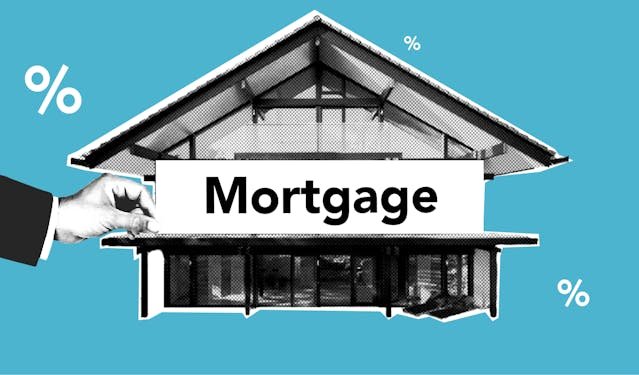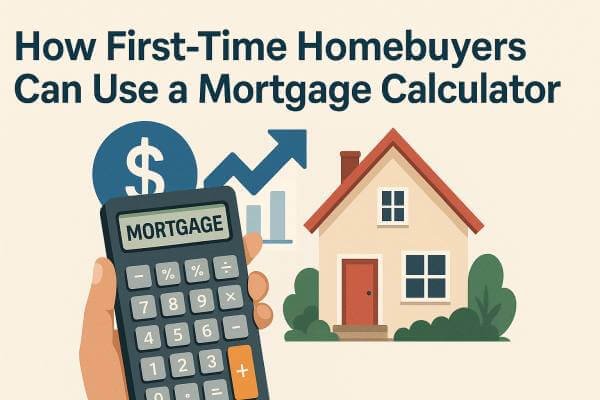Understanding Mortgages as a First-Time Home Buyer in the US

Understanding mortgages is vital for anyone stepping into the housing market for the first time. Mortgages for a first-time home buyer can seem overwhelming, but with the proper knowledge and preparation, you can confidently navigate this process.
Mortgages are essential for first-time home buyers to grasp, as they play a crucial role in making home ownership attainable.
A mortgage is a loan that helps you purchase a home by borrowing money from a lender, such as a bank or mortgage company.
How mortgages work
When you take out a mortgage, you agree to repay the lender over a set period, typically 15 to 30 years. This repayment includes the principal amount (the initial sum borrowed) and interest (the cost of borrowing the money).
Mortgages allow you to spread the cost of your home over many years rather than paying the total price upfront. Let’s say you’ve found a cosy house worth $300,000 but only have $30,000 saved. A mortgage lets you cover the remaining $270,000 and move into your new home sooner rather than later.
Over time, as you make your monthly payments, you gradually build equity in your home, the portion you truly own.
Mortgages are fundamental to home buying. Without them, many people would struggle to afford a home.
Mortgages provide the financial leverage needed to bridge the gap between what you have saved and the cost of the home you wish to purchase. This is especially important for first-time home buyers who might still need substantial savings or home equity to draw upon.
Why Mortgages Are Important for First-Time Home Buyers
For most first-time home buyers, purchasing a home outright with cash is not feasible when it comes to mortgages. Mortgages provide the necessary financial leverage to bridge the gap between your savings and the home you wish to buy. This leverage allows you to move into your dream home much sooner than if you had to save the entire amount.
Making Home Ownership Attainable
- Affordability: Mortgages allow first-time home buyers to purchase a home without paying the full purchase price upfront. This is particularly important in high-priced real estate markets where saving the entire amount would be unrealistic.
- Spreading the Cost: By spreading the home’s cost over many years, usually 15 to 30 years, buyers can manage monthly payments that fit within their budget.
Building equity and investing in the future
- Equity Growth: Each mortgage payment helps build equity in the home, which is the portion of the property that you own. Over time, as you pay down the mortgage and the property value increases, your equity grows.
- Financial Security: Building equity is a form of forced savings. Unlike renting, mortgage payments build your financial security, whereas monthly payments contribute to the landlord’s equity.
Stable housing costs and predictable payments
- Fixed-Rate Mortgages: Many first-time home buyers opt for fixed-rate mortgages, which ensure that the principal and interest payments remain the same throughout the loan term. This predictability helps in budgeting and financial planning.
- Protection Against Rent Increases: A fixed mortgage payment shields buyers from the market’s fluctuating, rising rent costs.
Tax benefits and financial advantages
- Mortgage Interest Deduction: One significant tax benefit for home buyers is the ability to deduct mortgage interest on their federal tax return. This can lead to substantial tax savings, particularly in the early years of the mortgage when interest payments are higher.
- Property Tax Deduction: Homeowners can also deduct property taxes, reducing their tax burden.
Building Credit and Enhancing Credit Profiles
- Credit Improvement: Regular, on-time mortgage payments can improve a buyer’s credit. Higher credit score can lead to better loan terms in the future, whether for refinancing a mortgage or obtaining other types of credit.
- Financial Responsibility: Successfully managing a mortgage demonstrates financial responsibility to other potential lenders.
Leveraging low interest rates and taking advantage of favourable market conditions
- Historically Low Rates: For first-time home buyers, low interest rates mean lower monthly payments and less interest paid over the loan’s life. The market’s timing to lock in a favourable rate can have a significant impact on overall affordability.
Professional guidance and expert assistance
- Mortgage brokers and lenders: First-time home buyers often benefit from working with mortgage brokers or lenders who can guide them through the process, helping them understand their options and find the best terms.
Types of Mortgages Available to First-Time Home Buyers
Understanding the different types of mortgages available is crucial for first-time home buyers. Here are some common mortgage types you might consider:
Fixed-Rate Mortgages
A fixed-rate mortgage has an interest rate that remains the same for the entire loan term. This stability makes budgeting easier because your monthly payments will remain constant.
- Pros: predictable payments and protection against interest rate increases.
- Cons: typically higher initial rates compared to adjustable-rate mortgages.
Adjustable-Rate Mortgages (ARMs)
An adjustable-rate mortgage has an interest rate that can change periodically based on market conditions. ARMs usually start with a lower interest rate compared to fixed-rate mortgages.
- Pros: Lower initial rates mean the potential for decreased payments if interest rates drop.
- Cons: uncertainty in payment amounts; the potential for higher payments if interest rates rise.
FHA Loans
The Federal Housing Administration backs FHA loans, which aim to assist first-time home buyers or those with lower credit scores.
- Pros: Lower down payment requirements and more lenient credit score criteria.
- Cons: Mortgage insurance premiums limit loan amounts.
VA Loans
VA loans are available to veterans, active-duty service members, and eligible surviving spouses. The Department of Veterans Affairs is backing these loans.
- Pros: No down payment required, no private mortgage insurance (PMI).
- Cons: Must meet the eligibility requirement’s potential funding fee.
USDA Loans
The USDA loans are backed by the U.S. Department of Agriculture and are designed for rural home buyers.
- Pros: No down payment is required, and interest rates are lower.
- Cons: Property must be in a USDA-eligible area; income limits apply.
Mortgage application process
Applying for a mortgage involves several steps, each crucial to securing the loan and getting you closer to owning your home.
Pre-Approval
Before you start house hunting, getting pre-approved for a mortgage is wise. Pre-approval involves a lender reviewing your financial situation and creditworthiness to determine how much they will lend you.
- Benefits: Knowing your budget increases credibility with sellers.
Choosing the right lender
Selecting the right lender is essential. Compare offers from multiple lenders to find the best interest rates and terms. Consider customer service, loan processing time, and additional fees.
Submitting the application
Once you’ve chosen a lender, you must complete a mortgage application. This involves providing detailed financial information, including income, assets, debts, and employment history.
Processing and underwriting
After submitting your application, the lender will process and underwrite your loan. During this phase, they verify your financial information and assess your ability to repay the loan.
Closing
If your loan is approved, you will proceed to the closing phase. At closing, you will sign the final loan documents, pay any remaining closing costs, and receive the keys to your new home.
Critical Considerations for First-Time Home Buyers
A first-time home buyer should consider several factors to ensure a smooth mortgage process and a successful home purchase.
Your credit score
Your credit score plays a significant role in determining your mortgage’s interest rate and terms. Aim to improve your credit score before applying for a loan to secure better rates.
Down Payment
Saving for a down payment can be challenging, but it is essential. While some loans offer low payment options, a larger down payment can reduce your monthly payments and interest costs.
Budgeting for additional costs
Remember, buying a home involves more than just the mortgage payment. Consider additional costs like property taxes, homeowners insurance, maintenance, and utilities.
Mortgage Insurance
If your down payment is less than 20%, you’ll likely need mortgage insurance. This insurance protects the lender if you default on the loan but also increases your monthly costs.
Debunking Common Mortgage Myths
There are many myths about mortgages that can mislead first-time home buyers. Let’s debunk some of the most common ones:
You need a 20% down payment.
While a 20% down payment can help you avoid mortgage insurance, many loans with lower down payment requirements are available. FHA loans, for example, require as little as 3.5%.
Only perfect credit scores qualify.
While a favourable credit score can secure better rates, many lenders offer buyers with less-than-perfect credit mortgages. Lower score holders can benefit from programmes like FHA and VA loans.
Renting is always cheaper
Renting can sometimes be cheaper in the short term, but homeownership builds equity over time, which can provide long-term financial benefits.
Conclusion
Understanding mortgages is a vital step for first-time home buyers. Mortgages for first-time home buyers can seem complex, but with the proper knowledge and preparation, you can navigate the process confidently. By exploring your options, considering your long-term financial goals, and seeking professional advice, you can make informed decisions that set you on the path to successful homeownership.
Remember, buying a home is a financial investment and a step towards building a secure and stable future. With the right mortgage, you can achieve your dream of homeownership and enjoy the many benefits that come with it.

















